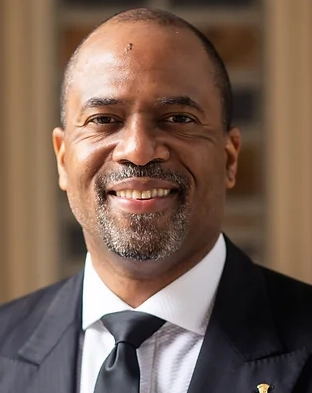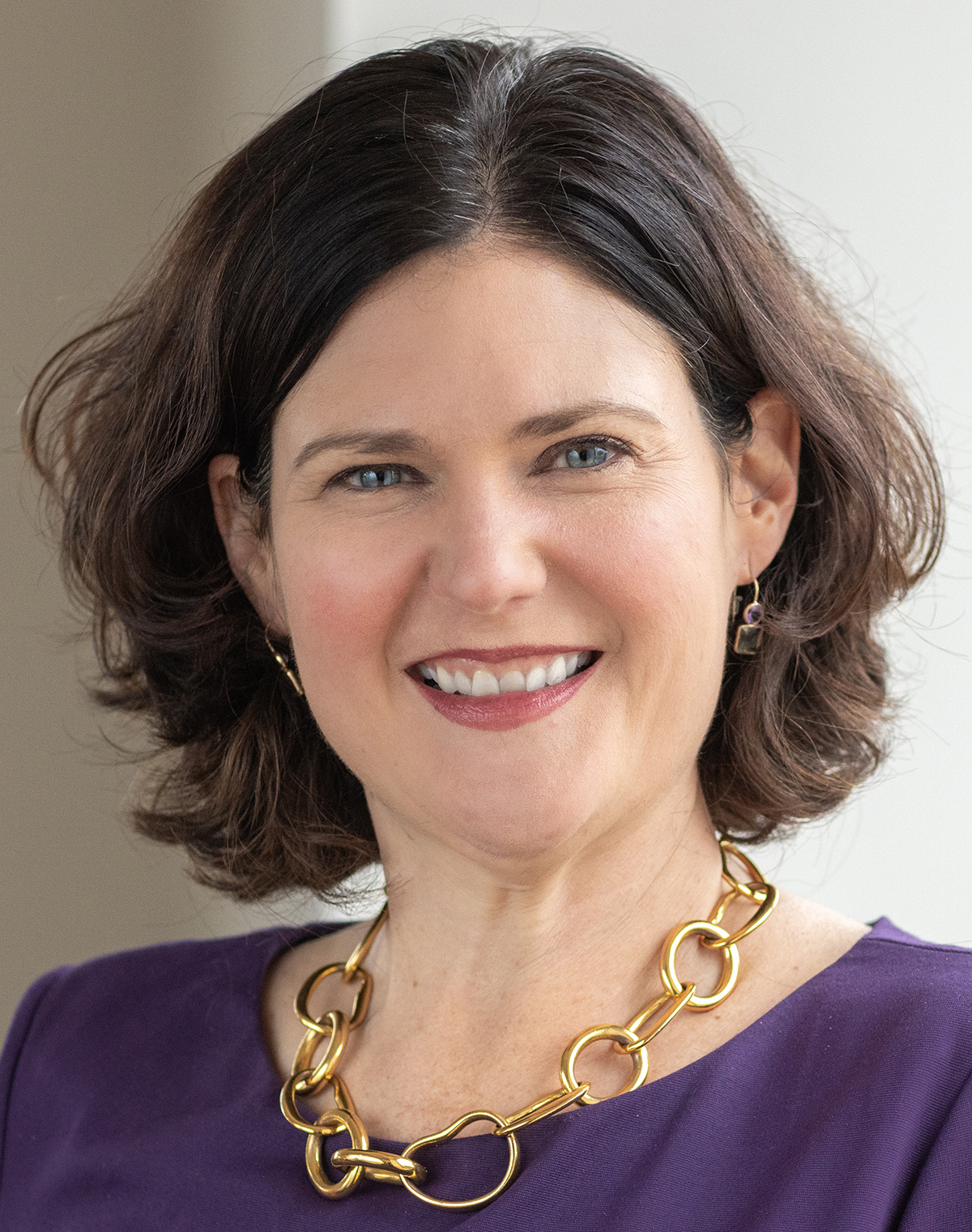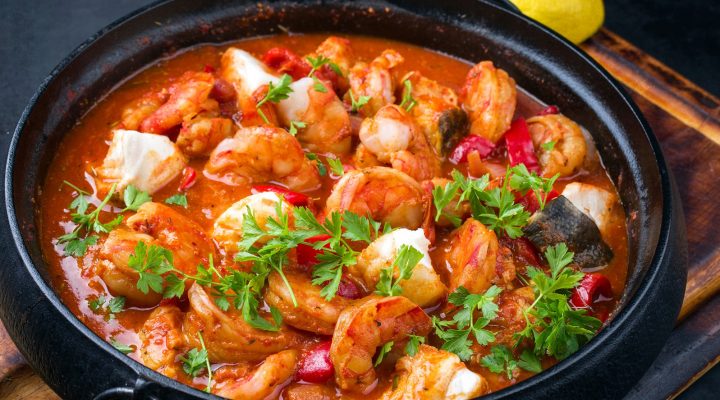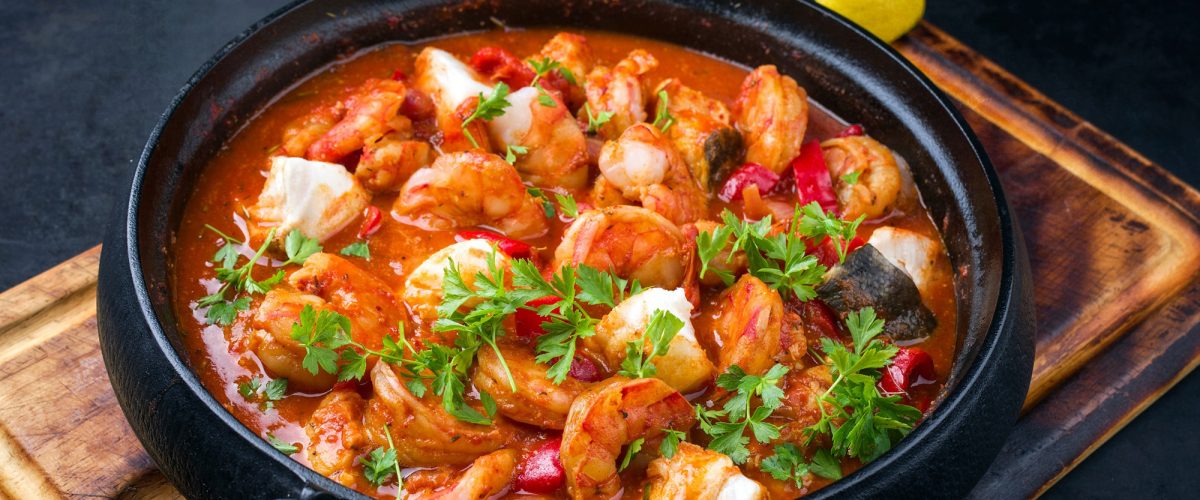Author, minister and scholar Jonathan Augustine suggests replacing the “melting pot” metaphor for American religion and society with one taken from a stew famous in his hometown of New Orleans.
“I think about the ability of people to be like gumbo where shrimp can be shrimp, oysters can be oysters, crabs can be crabs,” Augustine said during a recent episode of “Respecting Religion,” a podcast hosted by Baptist Joint Committee for Religious Liberty.
Augustine is senior pastor of St. Joseph AME Church in Durham, N.C., a professor of law at North Carolina Central University and author of When Prophets Preach: Leadership and the Politics of the Pulpit.

Jonathan Augustine
He was joined on the February podcast by BJC Executive Director Amanda Tyler and Holly Hollman, lead counsel and associate executive director of the Washington, D.C.-based organization.
Thinking of religious liberty in terms of a pot of gumbo communicates the idea that “people can all come together and practice their respective faiths without having to try to assimilate to a dominant narrative in America that oftentimes, quite frankly, has been wrapped around Christian nationalism,” Augustine said.
“America is better, particularly from a religious liberty perspective, with a bowl of gumbo, where everybody can fit in and be their full, authentic selves.”
Religious freedom according to Christian nationalism, on the other hand, represents “a conflation of cross and country that says people have got to behave a certain way, believe a certain thing, look a certain way in order to ‘fit in.’ That, again, for me is the metaphor of the melting pot of the past. I really believe America is better, particularly from a religious liberty perspective, with a bowl of gumbo, where everybody can fit in and be their full, authentic selves.”

Amanda Tyler
The melting pot analogy — assuming everyone should blend into the same indistinguishable thing — is about race and ethnicity as much as it is about religion, said Tyler, lead organizer of Christians Against Christian Nationalism.
Christian nationalism promotes a brand of Christianity that is white and Protestant, “which tracks with those who held power at the time of the founding,” Tyler said. “Even though we have this constitutional promise … we haven’t lived up to that promise throughout our history. At Christians Against Christian Nationalism, we acknowledge that Christian nationalism often overlaps with and provides cover for white supremacy and racial subjugation.”
Augustine agreed and added he sees Christian nationalism “as a conflation of cross and country that says there is a dominant power narrative that is oftentimes rooted in white Anglo-Saxon Protestant practices. And if you are not within that category, then in some way you are devalued or valued as less than those who are, and it’s a question of where you fit in.”
Black Americans always have been devalued in that process as have certain immigrant groups at times, including Catholic, Jewish, Buddhist and other religious minorities, he explained.
“The narratives of racial discrimination and ethnic discrimination have continually played out through the history of America in various ways, and oftentimes, the core or the root of it we see in white Christian nationalism, a power grab that is certainly laced and intertwined with racial discrimination.”
Two recent and painful examples of that movement were the 2015 massacre at Mother Emanuel AME Church in Charleston, S.C., and the 2022 Tops grocery store shootings in Buffalo, N.Y., he said.
The South Carolina shooter was “a very sick bigot” who “lifted up a white manifesto, a white replacement theory in noting that his cultural norms of white Anglo-Saxon Protestantism were being replaced in America by minorities, Jews, etc.,” Augustine said.
The same political framework was declared by the New York gunman, he added. “It is a framework that devalues others. It places a premium on God’s ‘original intent’ for America as a chosen nation. And, again, those who don’t fit in with that political framework or those who don’t fit in with that racial or ethnic framework are deemed less valuable and consequentially still treated more like chattel than like people.”
But a lot of white Christians push back against that observation, Hollman said.
“There’s an impulse in some Christian circles just to say, ‘There’s no way. Christianity can’t be racist.’ They just say that’s sick bigotry. There’s nothing in Christianity about that.”
“The role of prophetic preaching, the role of the prophet, is to … call something out that needs to be called out and address it — not to hide from it.”
In his new book, Augustine said he points out that uncovering these uncomfortable truths is what prophetic preaching is all about. “The role of prophetic preaching, the role of the prophet, is to … call something out that needs to be called out and address it — not to hide from it.”
That includes calling out racist interpretations of Scripture, including the so-called “curse of Ham” used by white supremacists to justify slavery and racism.
“Those who are of brown skin, those who are not of the ‘white Anglo-Saxon persuasion,’ those who are of darker skin, are cursed,” Augustine explained. “That is one of the great myths that has been associated with Christianity, and it has absolutely no merit whatsoever.
“Jesus came to show love and liberation, and he showed it unconditionally to all peoples. The Acts narrative speaks of the disciples going throughout various parts of the diaspora, spreading Christ’s love and liberation to all peoples, not in a prejudicial manner, not in a discriminatory manner, but in an indiscriminatory manner to all peoples.”
Prophetic preachers need to point to a more compassionate, loving version of Christianity, Augustine said. “We’ve seen two sides of Christianity over the course of American history, perhaps more pronounced in the public domain over the last few years because of the rise of white Christian nationalism. But there certainly is the need for the prophet to call a thing a thing and to speak truth to power.”


